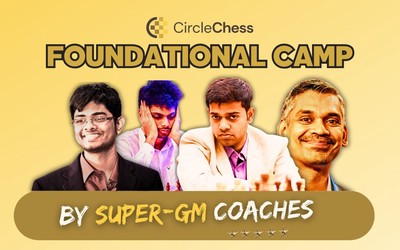
Chess Players' Journey - Novice to Advanced Beginner
Chess, among all other games, is known for its intricacy of combining tactics and strategies with psychology. This makes the game interesting for players of all skill levels and experiences as they are all challenged. For beginners, moving from being a novice to an advanced beginner can be described as a journey where one discovers many things about themselves which helps them improve their chess playing skills until they become masters. In this article we shall look at every step in this process ranging from challenges faced during these stages, what people celebrate after completing them like key events that occur while learning how to play chess.Phase I: The Unfolding
The first stage is always referred to as the awakening phase since it’s where everything starts making sense especially if you’re still new or not so familiar with chess. Here, people learn some rules such as how each piece moves; what checkmate means and basic concepts behind strategy plus tactics too. Most commonly there is usually a lot of enthusiasm shown when playing games at this level because everything seems exciting even though most moves made during such encounters are considered mistakes due to lack of experience in dealing with complexity involved within every game played here
Phase 2: Novice - Erection of a strong foundation
Once the players begin to internalize the rules and mechanisms of chess, they find themselves in the beginner stage where learning becomes more organized. Here, they concentrate on creating a firm grounding by studying simple beginnings, strategies for the middle game and basic endgames. As they learn different tactics and strategies repeatedly in their practice sessions so that these ideas become part of them.
Phase 3: Intermediate – mastering the art
The intermediate level marks a major milestone towards becoming a chess grandmaster. Players at this point possess sound understanding of the game’s basics which gives them confidence when making moves based on common plans. They also delve deeper into opening moves knowledge thus enabling them to exploit tactical opportunities better; besides, they refine decision-making skills having realized every move counts towards winning or losing. Additionally, some may study games played by experts while others engage in advanced tactical exercises so as to improve their abilities further still.
Phase 4 - Bettering Skills and Techniques
With players enhancing their skills and gaining a better understanding of the game, coaches can now place them at the level of advanced beginners. During this stage, players are said to have attained knowledge on foundational concepts in chess which enables them execute complex strategies accurately. What sets this level apart is the emphasis laid on tactical awareness as well as positional understanding; moreover, strategic thinking becomes part of their thought process too. Players can also decide to look into advanced opening moves or study intricate endgame positions besides analyzing games with a view to finding areas that need improvement.
Phase 5 - Difficulties Faced and Successes Celebrated
No player finds it smooth from being a novice to becoming an intermediate player. Along their journey they could encounter difficulties like rectifying careless mistakes made during play or adapting themselves when faced with different opponents who have unique styles of playing against them. Also losing games is another challenge but should not be taken negatively since it acts as the stepping stone towards success in future matches played against stronger rivals.
Conclusion: Love Every Moment
As one goes through these stages (novice –> advanced beginner), there will always be something new encountered thus making all phases exciting for anyone involved in chess at any level whether amateur or professional
More blog posts by CircleChessTeam

CircleChess Foundational Learning Series - By SuperGM Coaches
Join CircleChess's June live online chess lessons! Learn chess game online with top coaches. Limited…
The path to ELO 2000 - a Brief Overview
Achieving a FIDE classical rating of 2000 is a significant milestone in a chess player's journey, ma…
Foundational Camp by SuperGM Coaches
Foundational Camp by SuperGM Coaches